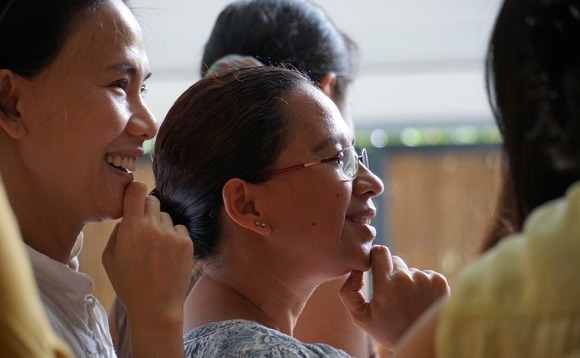
Deal focus: EmergeVest turns to Lucy for financial inclusion

EmergeVest has made a seed investment in Lucy, a Singapore-based neobank that focuses on home-based micro-entrepreneurs and Southeast Asia’s legions of foreign domestic workers
The neobank opportunity in Asia is broad. Within days of Kakao Bank making its trading debut in early August, achieving a market capitalization of more than KRW37 trillion ($31.9 billion), EmergeVest made a single-digit-million commitment to Lucy, the world's first neobank aimed at female entrepreneurs.
"We have a lesser-known strategy of investing in early-stage venture," says Heath Zarin, the private equity firm's CEO and formerly head of HSBC's principal investments business in Asia. "Within that, we focus on logistics, technology, and financial services. It ties into our theme of being passionate about the sustainable movement of goods, people, and funds around the world."
EmergeVest, is best known for EV Cargo, a primarily UK-based supply chain roll-up that spans transport, logistics and freight-forwarding services, and logistics technology. It generates approximately $1.5 billion in annual revenue. Early-stage financial technology exposure includes Lithic, which develops security software for online payments, and Detected, which helps online marketplaces with seller verification.
Lucy was established in Singapore two years ago by a trio of fintech veterans: Debbie Watkins, formerly Asia Pacific, Middle East, and Africa head of Fern Software; Hal Bosher, ex-CEO of Yoma Bank and chairman of digital wallet provider Wave Money, both of which are based in Myanmar; and Luke Janssen, previously CEO of Sydney-based software developer Tigerspike.
In 2020, 18 female investors from around the world provided a pre-seed round of S$500,000 ($366,000). EmergeVest has made its commitment using proprietary capital and expects to contribute more as the company scales.
Lucy will launch this year in Singapore with a focus on home-based micro-entrepreneurs and domestic helpers, many of whom are remitting money home to support small businesses. Its app-based offering features fee-free accounts with Mastercard, no-interest salary advances, savings accounts, loan management, and low-cost remittances. There is also financial education and networking platform.
"The number of women running businesses out of their homes has increased with COVID-19 restrictions. Lucy will provide financing and different tools," Zarin says. "For foreign domestic workers (FDWs), it is about cost-effective access to services, managing the relationship between employer and employee, through wage streaming and tracking loans and remittances, and personal finance education."
There are currently 250,000 FDWs in Singapore, most of whom live in their employer's residence and earn $350-600 per month for cooking, cleaning, childcare, and other domestic duties, according to the UN Capital Development Fund (UNCDF). They remitted more than $931 million in 2019, but an estimated 60% of FDWs return home each year with no accumulated savings.
UNCDF has a joint program with Lucy aimed at FDWs from Myanmar, Indonesia, and the Philippines. The goal is to reach 5,000 women by June 2022, offering products and services in local languages. The program will also serve as a launching pad for Lucy to expand directly into these markets. Zarin identifies Hong Kong and Dubai – a source of remittances, alongside Singapore – as other expansion targets.
More generally, the World Bank estimates that one billion people in Asia are unbanked. The most recent iteration of the Global Findex database found that China, India, Indonesia, and Bangladesh together accounted for one-third of the world's 1.7 billion unbanked population. Women make up 56% of the global total, and the gender gap is stark in several Asian countries, notably China, India, and Bangladesh.
"Oftentimes these women are underbanked because they are viewed as unprofitable from an administrative perspective – it costs money for banks to maintain accounts," Zarin adds. "There is an opening for neobanks with a different cost structure to provide a good user interface and services to customers that would not be viewed as sufficiently profitable for larger institutions."
Latest News
Asian GPs slow implementation of ESG policies - survey
Asia-based private equity firms are assigning more dedicated resources to environment, social, and governance (ESG) programmes, but policy changes have slowed in the past 12 months, in part due to concerns raised internally and by LPs, according to a...
Singapore fintech start-up LXA gets $10m seed round
New Enterprise Associates (NEA) has led a USD 10m seed round for Singapore’s LXA, a financial technology start-up launched by a former Asia senior executive at The Blackstone Group.
India's InCred announces $60m round, claims unicorn status
Indian non-bank lender InCred Financial Services said it has received INR 5bn (USD 60m) at a valuation of at least USD 1bn from unnamed investors including “a global private equity fund.”
Insight leads $50m round for Australia's Roller
Insight Partners has led a USD 50m round for Australia’s Roller, a venue management software provider specializing in family fun parks.







